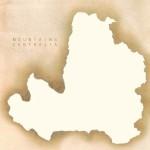
Mountains Centralia
(Thrill Jockey)
A major difficulty facing artists working in the obscure yet established musical genres has been to make themselves matter in a field dominated by a handful of relatively well-known names. In the case of Mountains, the Brooklyn electro-acoustic duo of Brendon Anderegg and Koen Holtkamp, their challenge has been to distinguish themselves from big names like Tim Hecker, Fennesz, and Stars of the Lid, all of whom achieved recognition for their meticulously evolving soundscapes years before they arrived on the scene.
While a daunting task, Mountains have quietly been chipping away at the drone music aesthetic and making their presence known with discrete, intricately crafted tunes since 2005 when they began on Apestaartje before moving to the more established Thrill Jockey in 2009. Mountains’ early efforts hinted at a capacity for space-maximizing sound, but often fell short with compositions that felt more like amalgamations of other artists’ work rather than anything truly distinctive.
Centralia, Mountains’ latest offering, marks the realization of the ideas that were hinted at on 2011’s Air Museum with more expansive and immersive electro-acoustic progressions that gradually blend together into droney ambience. Mountains have finally achieved a level of depth and sonic detail that communicates a vision as grand as the group’s namesake suggests.
Where Choral and Air Museum required more of an attention span than a keen listening habit, Centralia could easily be counted among the oeuvre of Fennesz or Tim Hecker, whose complimentary uses of noise and drone require a good pair of headphones to fully appreciate. Unlike Fennesz and Hecker, however, Mountains' sound is much more overt—where the former pay excruciating detail in crafting every byte of computer noise, Mountains’ process on Centralia feels more natural, with its movements growing as if by an evolutionary mechanism innate to the sounds themselves.
Album opener Sand recalls the patient orchestral arrangements used by Stars of the Lid—layers of drone and snippets of synth and electronic noise gradually merge into a fluid state of ambient bliss. This structure defines much of the work done on Centralia—patient movements of sound and haze, all carefully converging into intricately detailed sonic moments. The grandeur of Centralia can only be apprehended through the same patience from which it was born.
The longer tracks prove the most rewarding. As is the case with drone music, and Centralia in particular, time is the key— in the past, Mountains’ have had a difficult time finding full expression without the patience that ten or even twenty minutes could afford. A quick comparison between Centralia and Mountains’ 2011 effort Air Museum reveals a commitment to fleshed-out ideas on the former, improving where the latter suffered from too many incomplete-sounding compositions.
The shorter tracks, Identical Ship and Tilt, feature acoustic guitar melodies laid out over patiently expanding drone textures, and perfectly compliment the longer, more expansive noise-work of the three main body tracks. “Identical Ship” is compact and melodious, providing a serene transition into the piano and guitar-led Circular C. Tilt concludes the album’s discernable use of string instruments before launching into the longest and most exploratory of Centralia’s tracks, the sprawling 20 minute Propeller.
Propeller winds and builds from sparse electronic haze, incorporating every sonic element Mountains have refined over their career into a rich web of intertwining drone, synth, and noise. As deep as it is long, it wastes none of its length in distilling Mountains’ ideas into a single composition, which demonstrates a significant amount of growth for these veteran musicians.
Centralia finds Mountains in their finest form yet, indicating a new level of comfort in the space they’ve been carefully carving out over the past decade. Where Air Museum felt cavernous and Choral constrained, Centralia is grand in its audacious use of time and texture, carefully building simple guitar and synth melodies into powerfully emotive soundscapes that, at their best, reach just as far as anything produced by Fennesz or Tim Hecker. Finally auteurs in their own right, Mountains have a million places to go in 2013 and beyond, expanding the borders of a sound filled with nearly limitless expressive potential.
1 February, 2013 - 05:10 — Michael Smith